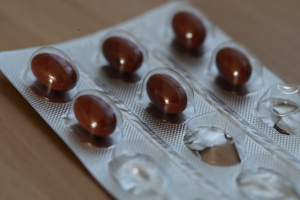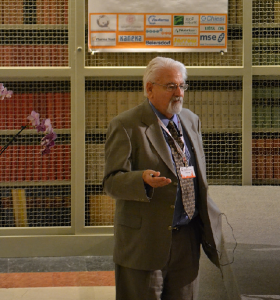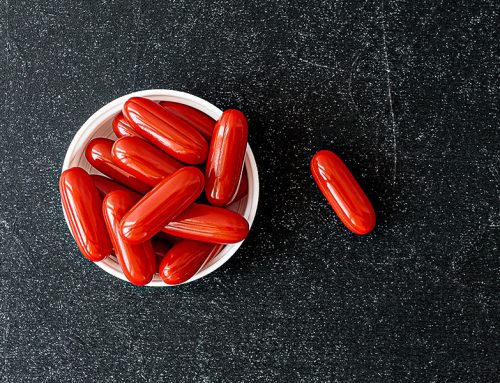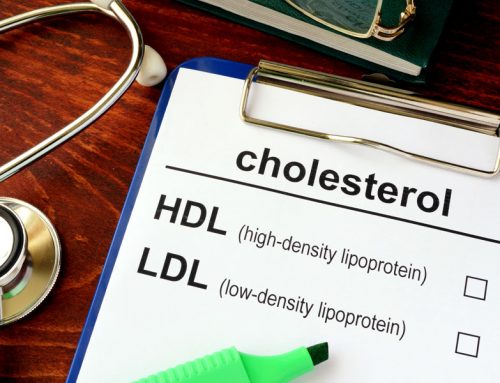
Some drug wholesalers may be providing Coenzyme Q10 supplements to the hospital pharmacy based on lowest price instead of based on documented absorption and health effects. In that case, the chronic heart failure patients will not be getting the absorption and health benefits documented in the Q-Symbio trial.
Imagine my surprise, recently, when I heard from a reliable source that some hospital pharmacies are stocking cheap powder-based Coenzyme Q10 products for use with hospitalized heart failure patients.
I was shocked.
The most important thing about the Coenzyme Q10 supplement is its formulation. Without a good formulation, there will very poor absorption. Without good absorption, there can be no real benefit to heart failure patients.
Powder-based Coenzyme Q10 supplements are not going to do the job optimally.
Crystalline Coenzyme Q10 raw material
The Coenzyme Q10 raw material comes to the supplement manufacturer in the form of a crystalline powder. Packing the Coenzyme Q10 powder into a tablet or mixing it (but not dissolving it) in an oil inside a capsule will yield, typically, an absorption of less than 1%.
Dr. Judy explains Coenzyme Q10 absorption
Dr. William Judy, SIBR Research Institute, himself a long-time Coenzyme Q10 researcher, has explained the absorption of Coenzyme Q10 in his seminal paper entitled Coenzyme Q10: Facts or Fabrications.

Dr. William Judy, the founder and president of the SIBR Research Institute, has been doing Coenzyme Q10 research for 40 years.
Dr. Judy makes the following points about the absorption of Coenzyme Q10:
- Human intestinal absorption occurs on a molecular level.
- We humans cannot absorb Coenzyme Q10 crystals.
- The supplement manufacturer must dissolve the raw material crystalline compounds to single molecules – and keep them dissolved inside the soft-gel capsules – to enable absorption.
- Crystalline Coenzyme Q10 has a poor dissolution in the chyme in the intestines because the melting point of the Coenzyme Q10 crystals is 10 degrees Celsius above the temperature in the stomach and the intestines.
- Further complicating matters is the need for a good lipid carrier for the Coenzyme Q10 single molecules. Without a proper carrier, even the single molecules will be poorly absorbed.
The job of the Coenzyme Q10 supplement manufacturer is to take the raw material powder and make it absorbable. We consumers need to be wary of Coenzyme Q10 supplements that are accompanied by fine sounding marketing claims but do not have a full range of documentation:
- absorption
- health effects
- safety
Absorption of Coenzyme Q10 is a tricky business
Coenzyme Q10 supplements are relatively inexpensive, but there is much variation in the retail prices of the supplements. Generally, we get what we pay for when we purchase Coenzyme Q10 supplements.
Yes, maybe … just maybe … the lower priced Coenzyme Q10 supplement gives a decent absorption. But, in the absence of documentation of good absorption in research studies, how can we be sure? And, why would we want to gamble with something that is important for good heart health?
The Coenzyme Q10 absorption rates vary considerably from product to product. Without a good absorption, the Coenzyme Q10 supplement will not help the heart failure patients or chronic fatigue syndrome patients in the way that the Q-Symbio study has shown that it can.
The all-important formulation of the Coenzyme Q10 supplement
To produce a Coenzyme Q10 supplement that will be absorbed as best it can, the supplement manufacturer must take the raw material Coenzyme Q10 powder and dissolve it in vegetable oils and contain it in soft-gel capsules and – this is most important – keep it dissolved. The dissolved Coenzyme Q10 single molecules must be delivered to the stomach and on to the small intestine.
Therefore, merely mixing Coenzyme Q10 powder in oils will not help absorption. The soft-gel capsules in which the dissolved Coenzyme Q10 molecules have re-crystallized inside the capsules will not help absorption.
This is very important to keep in mind.
How Coenzyme Q10 promotes good heart health
We need Coenzyme Q10 supplements because, as we age, our cells produce less and less Coenzyme Q10 and because it is practically impossible to make up for the loss of Coenzyme Q10 by eating more. The heart muscle cells can become starved for energy.
Coenzyme Q10 is a redox molecule that performs two indispensable biological functions:
- In its ubiquinone form, Coenzyme Q10 is essential to the process of cellular energy production (the heart muscle has a constant need for energy).
- In its ubiquinol form, Coenzyme Q10 provides antioxidant defense to the cells by neutralizing harmful free radicals.
These are the reasons that Coenzyme Q10 is such a useful adjunctive treatment for heart failure patients and for patients with low energy syndrome disorders. Coenzyme Q10, taken in the ubiquinone form, converts back and forth between the two forms numerous times in the cells. Nature has provided us with a vital molecule that both makes cellular energy production possible and helps neutralize the harmful by-products of cellular energy production.
How we know that Coenzyme Q10 supplements work
We have good evidence from the results of well-designed randomized controlled trials that Coenzyme Q10 supplements work. These are studies in which some patients have been randomly assigned to an active treatment group receiving daily Coenzyme Q10 supplements, and other patients have been randomly assigned to a control group receiving daily placebo capsules. The studies are double-blind studies, meaning that neither the researchers nor the participants know, until the end of the study, which patients have been getting the real Coenzyme Q10 and which patients have been getting capsules filled with vegetable oil but not Coenzyme Q10.
- Q-Symbio study: Coenzyme Q10 supplements improve the symptoms and survival of chronic heart failure patients. It reduces the risk of the patients’ needing to be re-hospitalized [Mortensen].
- KiSel-Q10 study: Coenzyme Q10 supplements in combination with a high-selenium yeast supplement maintains better heart function and reduces the risk of death from heart disease in senior citizens [Alehagen].
- Gulf War Illness study: Coenzyme Q10 supplements improved physical function and other symptoms in veterans with Gulf War illness [Golomb].
Ask the hospital pharmacist
It seems like a good idea to ask the hospital pharmacist if there is documentation for the absorption and safety and effects of the Coenzyme Q10 that we get in the hospital.
Sources:
Alehagen, U., Aaseth, J., & Johansson, P. (2015). Reduced Cardiovascular Mortality 10 Years after Supplementation with Selenium and Coenzyme Q10 for Four Years: Follow-Up Results of a Prospective Randomized Double-Blind Placebo-Controlled Trial in Elderly Citizens. Plos One, 10(12), e0141641.
Golomb, B. (2014). Coenzyme Q10 and Gulf War illness. Neural Computation, 26(11), 2594-651.
Mortensen, S. A., Rosenfeldt, F., Kumar, A., Dolliner, P., Filipiak, K. J., Pella, D., & Littarru, G. P. (2014). The effect of coenzyme Q10 on morbidity and mortality in chronic heart failure: results from Q-SYMBIO: a randomized double-blind trial. JACC. Heart Failure, 2(6), 641-649.
Disclaimer: The information presented in this article is not intended as medical advice and should not be used as such.









Leave A Comment